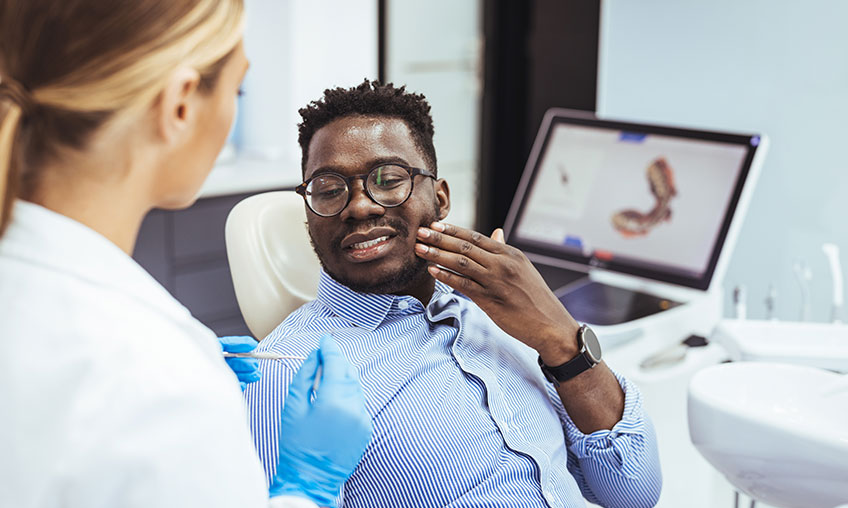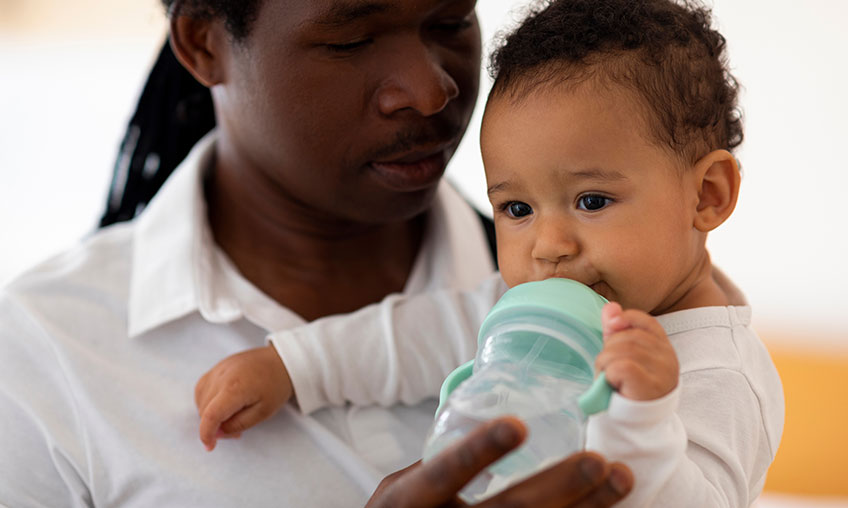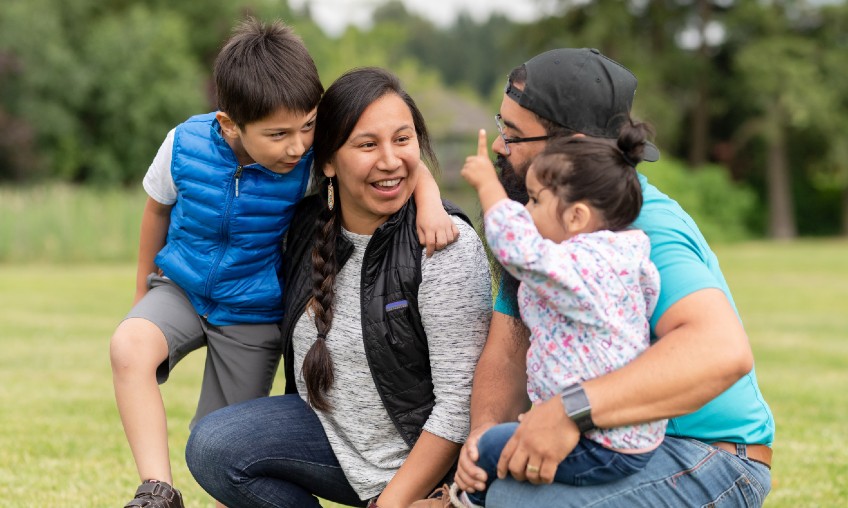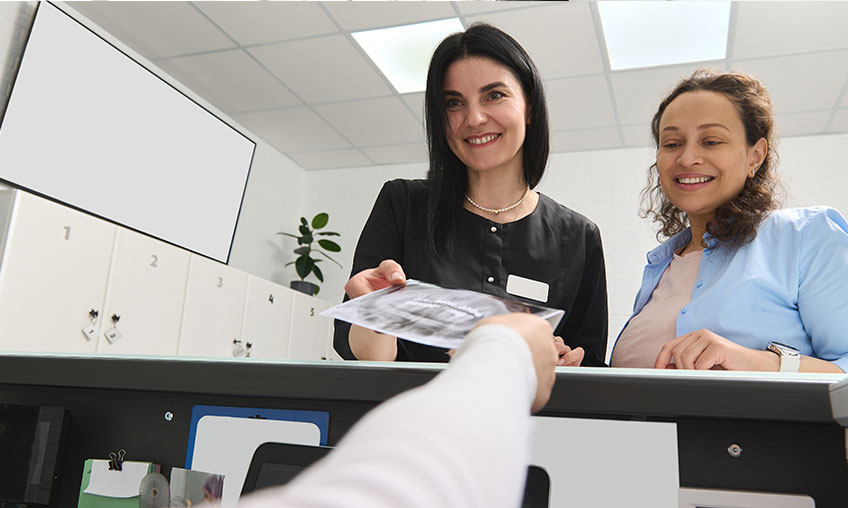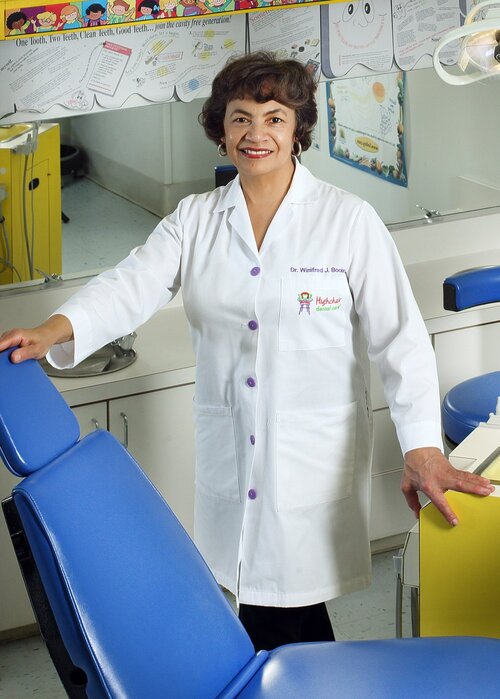 At DentaQuest, we are committed to improving oral health care for all — from infants to elders. And the best time to start teaching and promoting the importance of good oral health habits is when kids are young, because it’s never too early to learn that healthy habits equal healthy teeth.
At DentaQuest, we are committed to improving oral health care for all — from infants to elders. And the best time to start teaching and promoting the importance of good oral health habits is when kids are young, because it’s never too early to learn that healthy habits equal healthy teeth.
Introducing the basics of oral health care — partnered with routine dentist appointments — at an early age is important because tooth decay can begin as soon as a child’s first tooth grows in, usually around six months. If left untreated, tooth decay can cause pain and infections that can result in serious repercussions for a child, such as problems eating, speaking and learning.
We had the opportunity to speak with American Academy of Pediatric Dentistry Fellow and CEO & director of development of The Children’s Oral Health Institute, Winifred Booker, DDS, about her innovative and revolutionary approach to pediatric dental care – what she calls Highchair Dental Care. Here’s what she had to say:
When did you know you wanted to be a dentist?
I knew I wanted to be a dentist early on in my life. When I was 10 years old, I had experienced several uncomfortable, even painful, trips to the dentist. I protested going back for my next visit and said to my dad, “it’s not supposed to hurt this much and when I grow up, I’m going to prove it.” That’s how this all started.
What was it like to enter the dental profession?
My experience might be a bit different than other practitioners. Once I graduated dental school, I immediately practiced in a community with limited access to dental care, so it was like an endless operatory of oral health care needs. That’s not to say my career hasn’t been rewarding — the opposite is true. I am so pleased to be responsible to serve pediatric patients. Providing them with the dental care they need rewards my soul every day.
You founded the Highchair Dental Care practice. Can you share what this initiative is all about? Highchair Dental Care practice is an oral health care model that provides an optimistic and insightful approach to infant and family oral health care utilizing the highchair in the dental operatory. It recreates an environment that families know and understand because of this familiar use at home and at daycare. Children are contained but not restrained using this approach to oral health care.
This practice model is a child-friendly approach that works well with most infants and toddlers, from caregiver anticipatory guidance to routine dental hygiene, and actual patient care. Highchair Dental Care introduces a standard of care model that is strategic in competence to address infant and toddler oral health. It helps draw attention to the importance of innovation and early interventions to prevent early childhood caries and other potential unfavorable sequelae.
What inspired you to start this practice?
It was originally born out of necessity. In 2014, I sustained a rotator cuff tear in my right shoulder and was rendered unable to perform the traditional pediatric dental lap exam. I had to problem solve and find a way to still treat my pediatric patients. That’s when it dawned on me to purchase a highchair to see my one and two-year-old patients. It is now routine care for this patient population.
You’re also the founder of The Children’s Oral Health Institute and through this organization you offer a program called Lessons in a Lunch Box: Healthy Teeth Essentials & Facts About Snacks® — what is the purpose of this initiative?
Lessons in a Lunch Box: Healthy Teeth Essentials & Facts About Snacks is an elementary school-based health literacy program for second and third grade children. It uniquely delivers health education content using a nifty orange lunch box, and a uniquely designed dental care in a carrot case.
This lunch box includes a reflective sticker strategically placed on its opening that is designed in the likeness of a smile. It reads, “See yourself becoming a dentist, a dental hygienist, a dental laboratory technician or a dental assistant,” to inspire interest in dental health careers. The lunch box teaches about diet, hygiene and food portion controls utilizing the Food & Drug Administration (FDA) Food Plate. Written and picture instructions reinforce good dental hygiene practices and promotes routine oral and respiratory health maintenance. These lessons are taught in English, Spanish, sign language and utilizing braille ligands.
How has DentaQuest been a partner in supporting these programs?
DentaQuest’s support has been wonderful. Their contribution continues to empower the Lessons in a Lunch Box to reach nearly 65,000 elementary school students, and exposes thousands of children to careers in the dental profession and families to employment opportunities.
 Preventistry Pulse Image
Preventistry Pulse Image
PREVENTISTRY PULSE
The newsletter designed for anyone who wants to improve oral health for themselves, their families, customers or communities.
